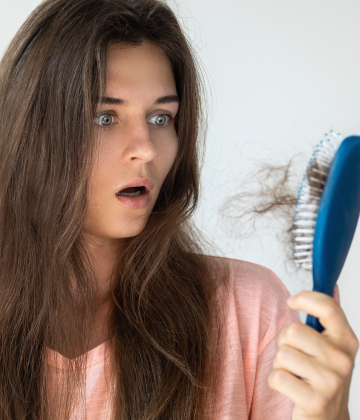Hair fall is one of the problems that numerous people all over the world suffer from. Although losing some hair each day is considered normal, losing an unusual amount of hair remains a cause for worry. The good news is that with the right practices, such as proper nutrition, hair care, and medications, hair regrowth is possible. In this guide, we will analyze the reasons for hair fall, provide natural and medical remedies, and further delve into methodologies to ensure effective hair regrowth.
Whenever the strands of hair fall, it leads to a scalp imbalance as the hair sheds faster than it can grow back. On average, a person is expected to lose between fifty and a hundred hair strands each day. However, if there are bald patches formed on the scalp, it could mean that an underlying issue needs to be dealt with.
Advanced treatment options, along with lifestyle alterations and natural remedies, are essential for the regrowth of lost hair. The following steps outline the most effective methods for promoting hair growth :
Hair fall is indeed a common issue, but with the appropriate knowledge and treatments, it is possible to achieve hair regrowth. You can restore your hair's health and thickness by addressing the primary causes, adopting a sound hair care routine, and turning to advanced medical treatment when needed. If bald patches or thinning hair persist, see a dermatologist who can design a personalized treatment plan.

Loss of hair is linked to different factors such as genetics (male pattern baldness or female pattern hair loss), hormonal changes, lack of nutrition, stress, scalp infections, overuse of heat and strong chemical products, and conditions like thyroid disorders or alopecia areata.
Yes, hair regrowth is possible if the right preconditions are maintained. A healthy routine that includes a balanced diet, essential oils, gentle scalp massages, and herbal remedies like aloe vera and onion juice can promote natural regrowth. In more severe cases, treatments like Minoxidil, PRP therapy, or hair transplants may be necessary.
Maintain a diet rich in proteins, vitamins, and minerals. Avoid excessive use of strong shampoos, chemical treatments, and heat-styling tools. Keep your scalp clean and healthy. Manage stress and perform regular scalp massages to enhance blood circulation.
Hair regrowth timelines vary from person to person. Natural methods may take 9 to 12 months to show noticeable improvement. Medical treatments such as PRP, GFC, and Oxygen Laser Therapy can show results in about 6 months. Hair transplants are suitable for those in advanced stages of pattern baldness.
You should consult a dermatologist or trichologist if you experience sudden or excessive hair loss, bald patches, or continuous thinning that doesn't improve with home remedies. A professional can diagnose the issue and recommend clinical or surgical treatments, along with suitable medications.